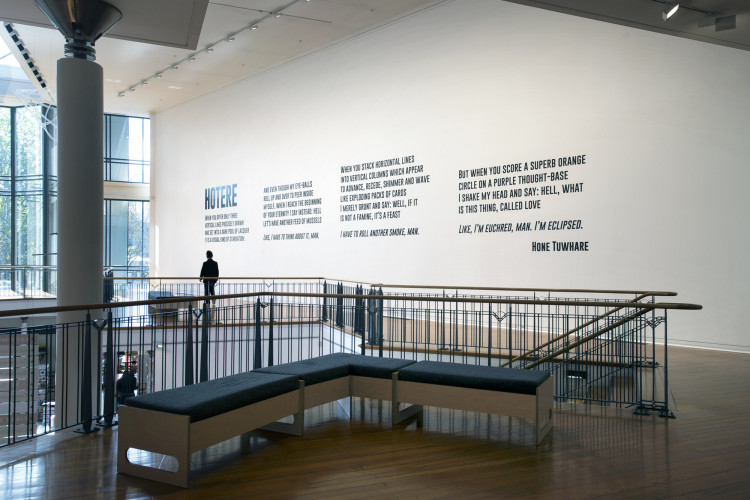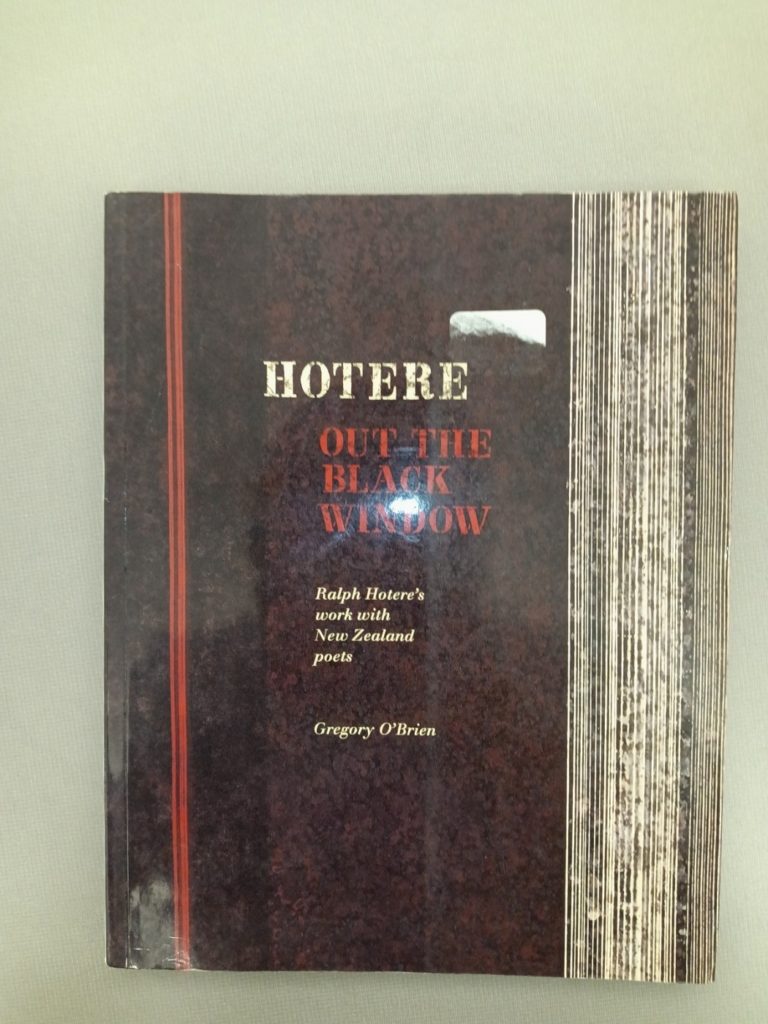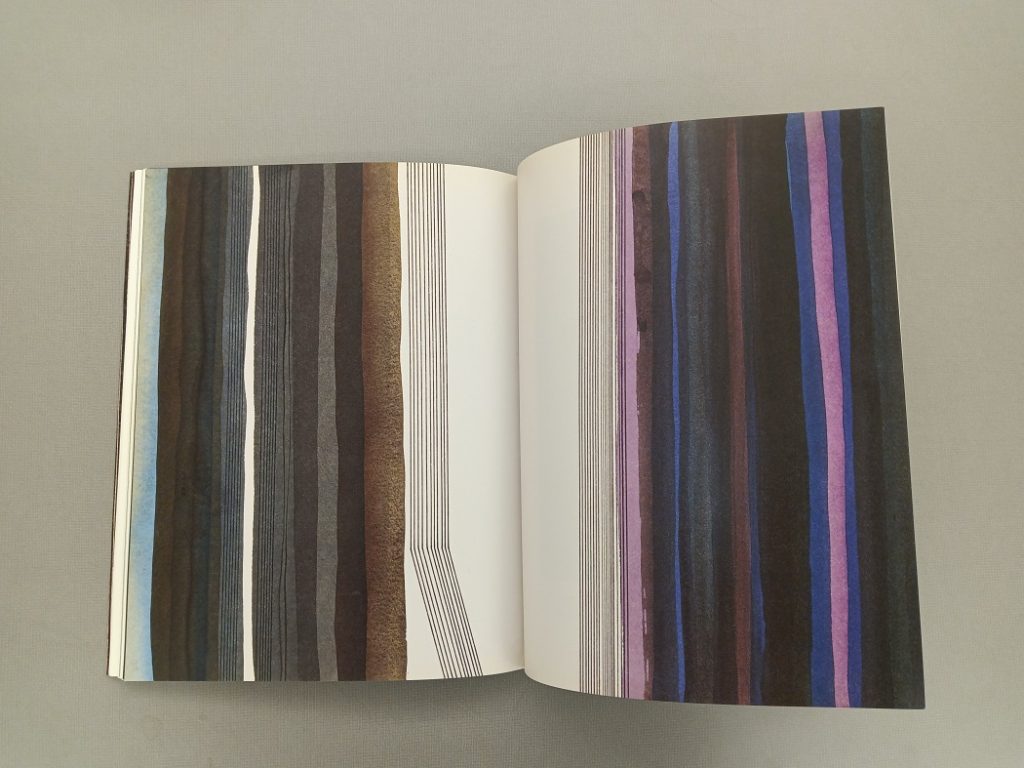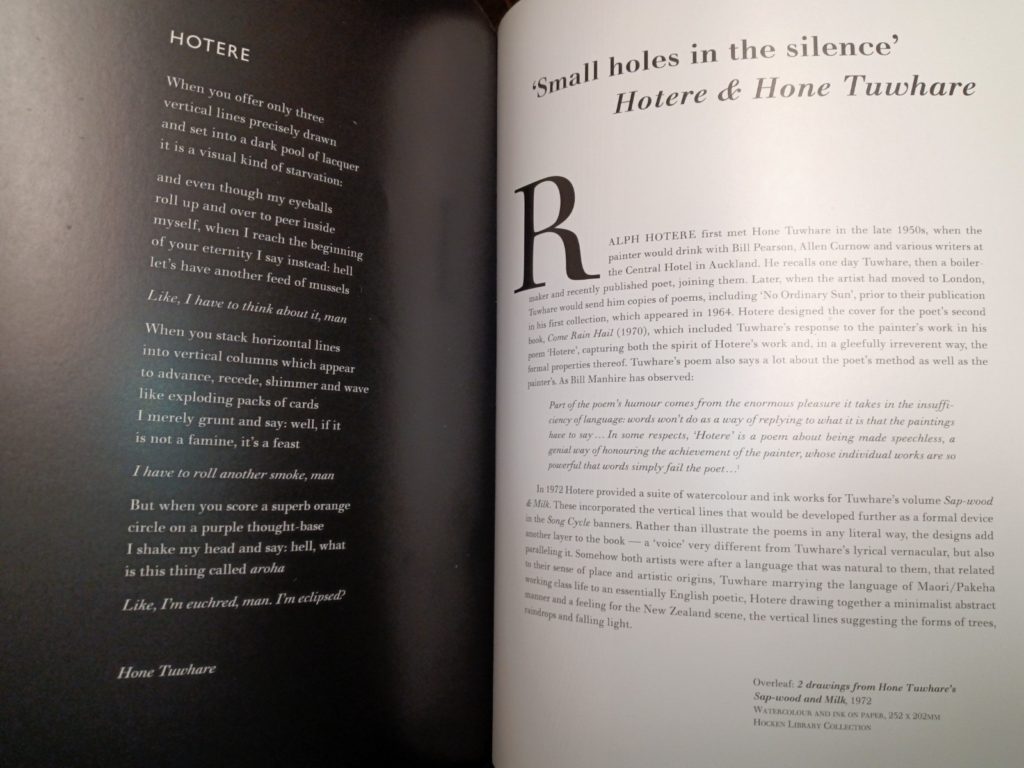For all the poets he now reads since my ‘death’ (and remember I am a library’s ghost dictating these words to him, my librarian, from the shelves of his ‘living’ library, which I currently haunt), he still has lines of that old-type natural fouled-up guy-poet Philip Larkin enmeshed in his memory.
Even when he opens a book like Gregory O’Brien’s Hotere: Out of the Black Window (Auckland: City Gallery Wellington, 1997) and reads about the artist Ralph Hotere, of Māori descent (Te Aupōuri and Te Rarawa) and his collaborations with Māori poet Hone Tuwhare (Ngā Puhi, Ngāti Korokoro, Ngāti Tautahi, Te Popote and Uri-o-Hau), and specifically Tuwhare’s 1976 poem ‘Hotere’, he cannot help his mind turning its cogs back to Larkin’s tomb-like line of verse: What Will Remain of Us is Love.
Like this blog, and its memory, words (and their hidden links) are vehicles to transport us through time and space (in this case back to a year of daily posting in Liverpool between biennials, in a trip between the Athens and Kassel of documenta 14 (the latter with Hotere’s Malady Panels, 1971).
So, tell me any Māori readers out there, on the BIG WALL version of Tuwhare’s ‘Hotere’ at the Dunedin Public Art Gallery, why was the word ‘aroha’ replaced by ‘love’?



